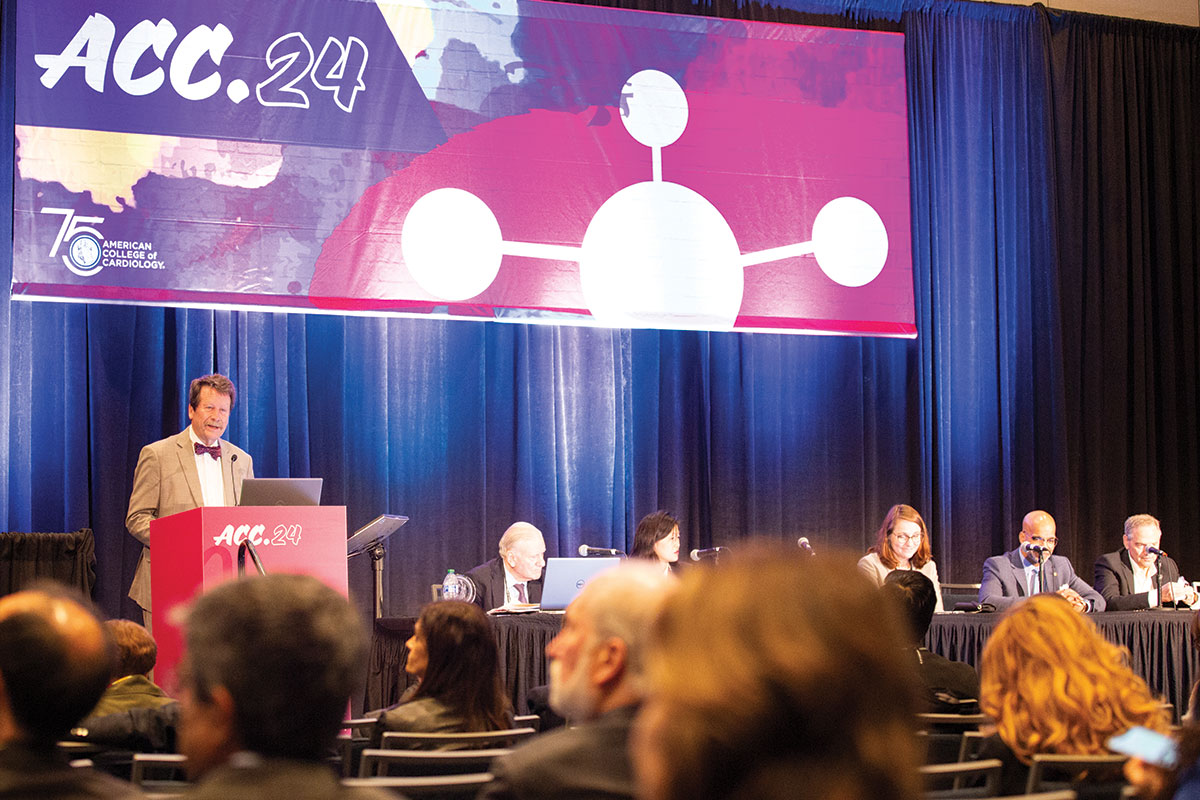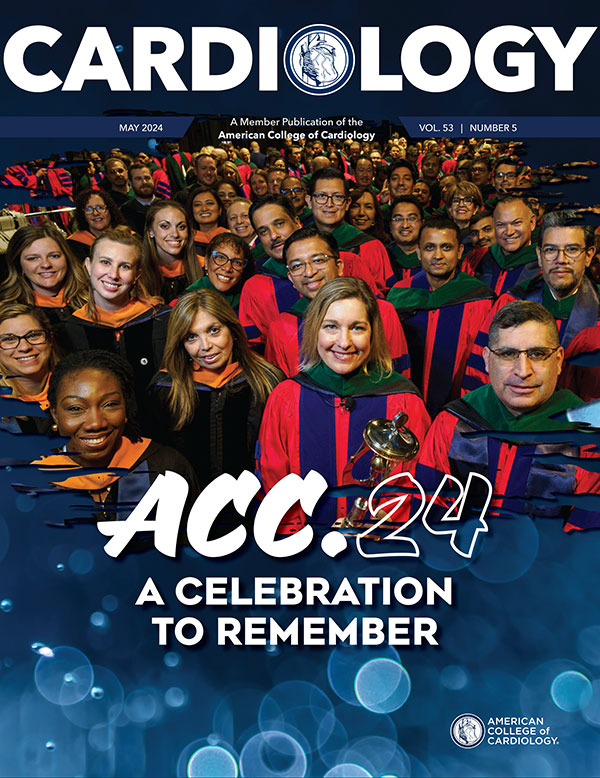Heart of Health Policy | Charting the Course: 7 Ways CV Clinicians Can Reshape Health Care

With cardiovascular diseases remaining the #1 killer in the U.S. and a major contributor to shorter life expectancies compared with other high-income countries with lower health care costs, more is needed from cardiovascular clinicians to reverse this trend, said Robert M. Califf, MD, MACC, during his Eugene Braunwald Keynote at ACC.24.
Califf, who is currently serving as commissioner of the U.S. Food and Drug Administration (FDA), outlined seven ways clinicians spanning the entire cardiovascular care team can help optimize patient care and outcomes and shape the way forward.

Continued support of discovery and translational science. The current digital revolution, characterized by a fusion of technologies that blur the lines between physical, digital and biological spheres, is best seen with the advent of artificial intelligence (AI), which is referenced in some aspect of most applications to the FDA. These technologies are speeding discovery and may help to unlock current mysteries in areas like cardiometabolic disease.

Stewardship of technological innovation. The U.S. spends $4.5 trillion annually on medical research that often moves faster than the generation of evidence to supports its use. Notably, in treatment guidelines, <15% of recommendations are supported by high-level evidence and lower-level evidence and expert opinion fill the gaps. Registries and quality measures help, but new ways are needed to contribute to the evidence base.

Participation in evidence generation. An active vs. passive national science system is needed to meet the challenges of today and tomorrow. In today's passive system no one party, even the FDA, is responsible for oversight of postmarket evidence. Active, continuous surveillance is needed. Clinical trials need to be embedded within the health care system to answer practical questions in a faster, more efficient way, allowing the ecosystem to have faster access to evidence and current findings. The obesity-cardiovascular disease paradigm, including the weight loss drug pipeline with some 450 drugs, offers an opportunity to consider an active approach to evidence generation that is more oriented to public health.

Collaborative care. Many chronic diseases, including cardiovascular disease, have many common threads driving the disease. This calls for collaboration across disciplines for research and patient care, as well as cardiovascular clinicians working with the entire team to deliver patient-centered care.

Engagement with societal institutions. Adopting a broader focus and learning about other areas, such as food, tobacco, gene editing and biologics, that have the potential to impact cardiovascular health can help contribute to science and patient care. Clinicians need to also consider how to contribute to the provision of accurate, science-based information to patients and the public in ways that lead to meaningful improvements in their heart health.

Develop and deploy digital health technologies (DHT) and AI. DHT and AI can expedite the development of new approaches in health care, provided they are developed responsibly. According to the FDA, responsible DHT and AI ecosystems should be developed in a manner that fosters collaboration to safeguard public health; advance development of regulatory approaches that support innovation; promote development of harmonized standards, guidelines, best practices and tools; and support research related to evaluation and monitoring of AI performance. DHT and AI will no doubt have a large impact, but the question is whether they will be used to improve health for populations and individuals or whether they will be used to segment the population to optimize finances and thus increase disparities.

Create a reliable fabric of information. Combatting the various forms of misinformation will take concerted effort to lead to factual, interactive broad discourse as part of generating evidence for informed decisions, as well as reaching patients.
Click here to access ACC Anywhere to view the Braunwald Keynote and the accompanying panel discussion with Valentin Fuster, MD, PhD, MACC; Christine M. Albert, MD, MPH, FACC; Harlan M. Krumholz, MD, SM, FACC; Bonnie Ky, MD, MSCE, FACC; and Clyde W. Yancy, MD, MACC.
Keywords: Cardiology Magazine, ACC Publications, Quality Indicators, Health Care, Biomedical Research, Biological Products, Gene Editing, Health Policy
< Back to Listings
